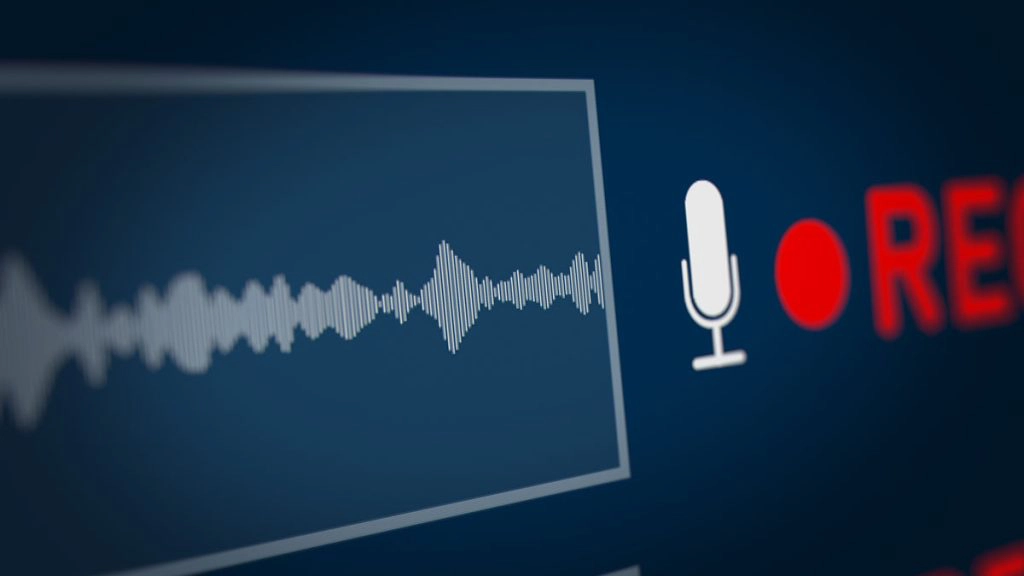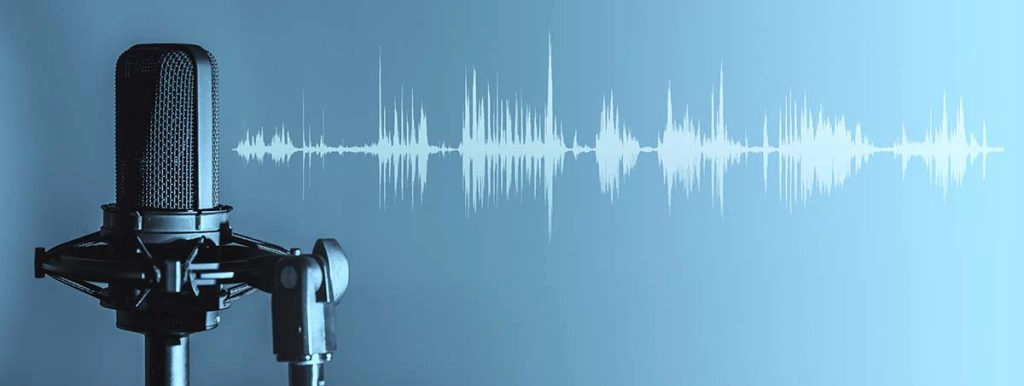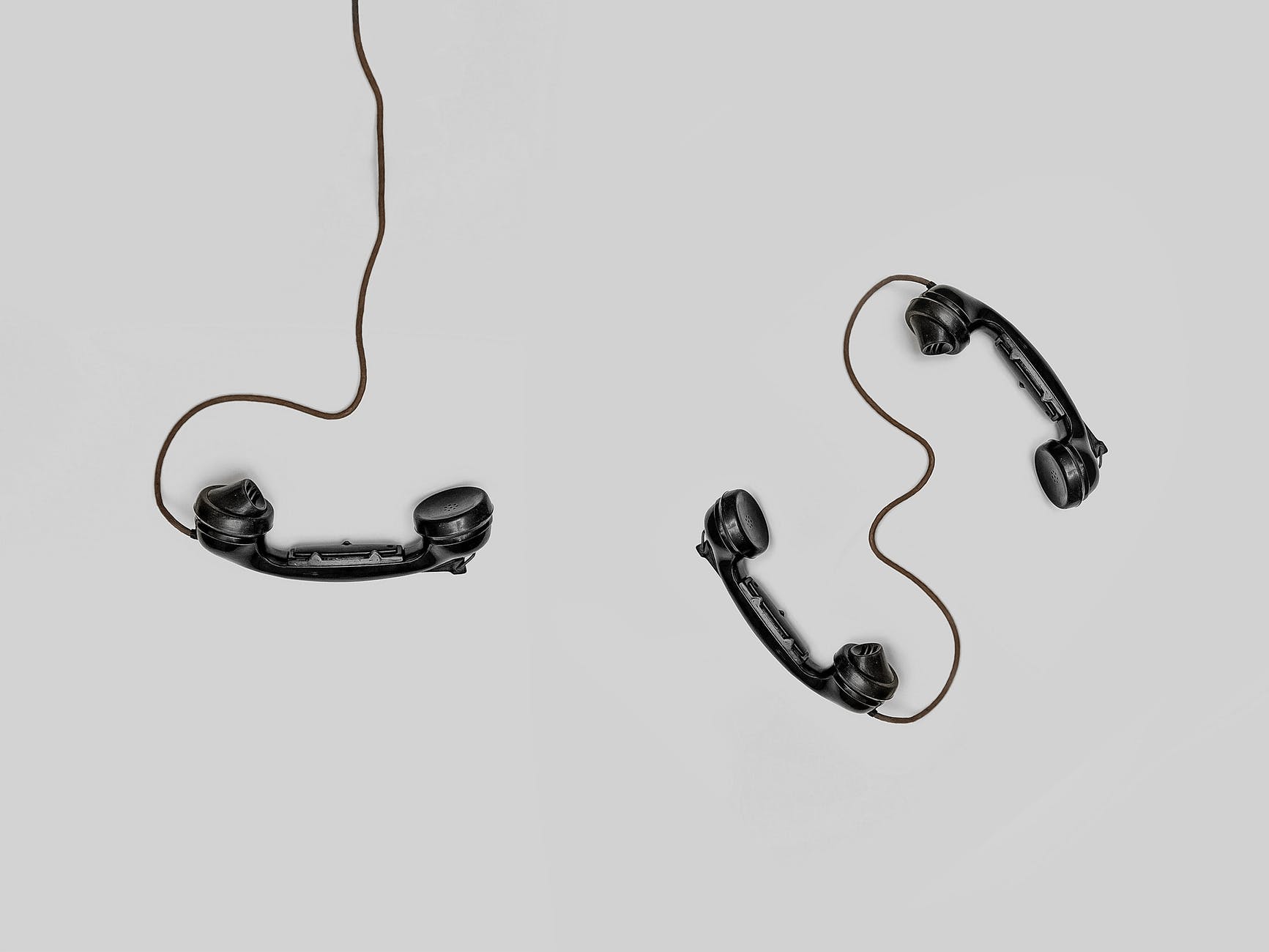- Alabama Recording Law Summary:
- The Legal Foundation
- One-Party vs. Two-Party Consent Explained
- Can You Record Phone Calls in Alabama?
- Recording Calls Across State Lines
- Business Call Recording
- When Is It Legal?
- When Is It Illegal?
- What About Recording in Your Own Home?
- Public Spaces
- Private Property
- Can Your Employer Record You?
- Can You Record Your Employer?
- Can You Record Police Officers in Alabama?
- Recording Government Meetings
- Can I Record My Landlord in Alabama?
- Can I Record My Doctor in Alabama?
- Can I Record CPS Workers?
- Can I Record My Ex-Spouse or Co-Parent?
- Can I Use a Dashcam in Alabama?
- Are Recordings Admissible in Court?
- Criminal Cases vs. Civil Cases
- Criminal Penalties
- Civil Liability
- Is Alabama a one-party consent state?
- Is Alabama a two-party consent state?
- Can I record a conversation without the other person knowing in Alabama?
- Can I sue someone for recording me in Alabama?
- Do I need to tell someone I'm recording in Alabama?
- Can I record a Zoom call in Alabama?
- Can I record in a store or mall in Alabama?
- What is the penalty for illegal recording in Alabama?
- Can recordings be used in divorce court in Alabama?
- Does Alabama have hidden camera laws?
- Two-Party Consent States

Alabama Recording Law Summary: 
Last Updated: January 2025 | Verified against current Alabama Code
Quick Answer
Alabama is a one-party consent state. You can legally record any conversation you’re participating in without telling anyone else. If you’re not part of the conversation, you need consent from at least one participant to record legally.
| Key Point | Answer |
|---|---|
| Consent Type | One-Party |
| Can you record your own calls? | Yes |
| Must you inform others? | No |
| Primary Statute | Ala. Code § 13A-11-30 |
| Maximum Fine | $6,000 |
| Maximum Jail Time | 1 year (Class A misdemeanor) |
Our recommended Digital Voice Recorder.
Understanding Alabama’s Recording Laws
The Legal Foundation
Alabama’s wiretapping and eavesdropping laws are found in Title 13A, Chapter 11, Article 1 of the Alabama Code. The key statutes are:
- Ala. Code § 13A-11-30 – Criminal eavesdropping
- Ala. Code § 13A-11-31 – Criminal surveillance
Under these statutes, it’s illegal to intentionally intercept or record wire, oral, or electronic communications without the consent of at least one party to the conversation.
One-Party vs. Two-Party Consent Explained
In a one-party consent state like Alabama, only one person in the conversation needs to know about and consent to the recording. That person can be you. You don’t need to announce “this call is being recorded” or get anyone else’s permission.
In contrast, two-party (or all-party) consent states like California and Florida require everyone in the conversation to agree to be recorded.
Recording Phone Calls in Alabama

Can You Record Phone Calls in Alabama?
Yes. Under Ala. Code § 13A-11-30, you can record any phone call you’re participating in without informing the other party. This applies to:
- Landline calls
- Cell phone calls
- VoIP calls (Zoom, Teams, Google Meet, etc.)
- Video calls
Recording Calls Across State Lines
If you’re in Alabama calling someone in a two-party consent state, the stricter law typically applies. States requiring all-party consent include:
- California
- Connecticut
- Florida
- Illinois
- Maryland
- Massachusetts
- Montana
- Nevada (for phone calls)
- New Hampshire
- Pennsylvania
- Washington
Best practice: If you’re recording calls with people in other states, either inform them or get all-party consent to be safe.
Business Call Recording
Alabama businesses can record calls for quality assurance, training, or compliance. The FCC guidance on consent includes:
- Verbal consent before the call begins
- A recorded announcement (“This call may be recorded…”)
- A periodic beep tone during the call
Recording In-Person Conversations
When Is It Legal?
You can record in-person conversations in Alabama when:
- You’re participating in the conversation
- You’re in a public place where there’s no reasonable expectation of privacy
- You have consent from at least one party (which can be yourself)
When Is It Illegal?
It’s illegal to record conversations when:
- You’re not a party to the conversation and don’t have consent
- You’re recording in a place with a reasonable expectation of privacy without consent
- You’re recording with criminal intent
What About Recording in Your Own Home?
You can record conversations in your own home if you’re participating. However, you cannot:
- Plant a hidden device and leave to record others
- Record guests in areas with privacy expectations (bathrooms, guest bedrooms)
- Record intimate activities without consent
Alabama Video Recording Laws

Public Spaces
Alabama has no general prohibition on video recording in public spaces. You can:
- Film on public streets, parks, and sidewalks
- Record public meetings and government proceedings
- Use dashcams in your vehicle
- Film public protests or demonstrations
Private Property
On private property, the property owner sets the rules. Alabama law under Ala. Code § 13A-11-31 specifically addresses criminal surveillance and prohibits:
- Recording someone in a “place where one may reasonably expect to be safe from casual or hostile intrusion or surveillance”
- Recording intimate images without consent
- Distributing intimate images without consent
If you are recording someone’s likeness for business purposes, you should ensure that you gain proper consent by having them fill out a photo or video consent form.
Recording in the Workplace
Can Your Employer Record You?
Alabama employers can generally record in common work areas where employees don’t have a privacy expectation. However, employers cannot record in:
- Bathrooms
- Locker rooms
- Changing areas
Can You Record Your Employer?
Yes. As a one-party consent state, you can record conversations with your boss, HR, coworkers, or anyone else at work – as long as you’re part of the conversation. This can be valuable for:
- Documenting harassment or discrimination
- Recording performance reviews
- Protecting yourself in disputes
- Preserving important instructions
Caution: Your employer may have policies against recording. While recording is legal, violating company policy could result in termination.
Recording Police and Government Officials
Can You Record Police Officers in Alabama?
Yes. The First Amendment protects your right to record law enforcement officers performing their duties in public. In Alabama, you can:
- Film traffic stops (including your own)
- Record arrests happening in public
- Document interactions with police
- Livestream encounters
Important limitations:
- Don’t interfere with police operations
- Don’t trespass to get a better angle
- Follow lawful orders to step back (within reason)
- Don’t obstruct the officer’s duties
Recording Government Meetings
Alabama’s Open Meetings Act generally allows recording of public government meetings. You can record:
- City council meetings
- School board meetings
- County commission meetings
- Public hearings
Specific Situations
Can I Record My Landlord in Alabama?
Yes, if you’re part of the conversation. Recording interactions with landlords can help document:
- Verbal agreements about repairs
- Harassment or illegal entry
- Disputes about lease terms
- Evidence for tenant rights cases
Can I Record My Doctor in Alabama?
Yes, you can record medical appointments you attend. This can be helpful for:
- Remembering complex medical instructions
- Documenting informed consent discussions
- Having a record of diagnoses
- Sharing information with family caregivers
Can I Record CPS Workers?
Yes. Child Protective Services workers are government employees, and you can record your interactions with them as long as you’re participating in the conversation.
Can I Record My Ex-Spouse or Co-Parent?
Yes, during conversations you’re part of. This is common in custody disputes. However:
- Don’t record your children’s private conversations without being present
- Don’t use children to secretly record the other parent
- Consider how recordings may be viewed by family courts
Can I Use a Dashcam in Alabama?
Yes. Dashcams are legal in Alabama. There are no specific laws restricting their use, but you should:
- Mount the camera so it doesn’t obstruct your view
- Be aware that audio recording follows one-party consent rules
- Check if your insurance offers dashcam discounts
Using Recordings as Evidence in Alabama
Are Recordings Admissible in Court?
Recordings made legally under Alabama’s one-party consent law are generally admissible as evidence. However, courts may consider:
- Authentication – Can you prove the recording is genuine and unaltered?
- Relevance – Does the recording matter to the case?
- Hearsay rules – Some statements may be excluded
- Prejudicial vs. probative value – Does it unfairly influence the jury?
Criminal Cases vs. Civil Cases
- Criminal cases: Illegally obtained recordings are typically inadmissible and may result in charges against you
- Civil cases: Rules can be more flexible, but illegally obtained evidence may still be excluded
Penalties for Illegal Recording in Alabama

Criminal Penalties
Under Alabama law, illegal recording violations fall into different categories:
| Offense | Classification | Penalty |
|---|---|---|
| Criminal eavesdropping (§ 13A-11-30) | Class A misdemeanor | Up to 1 year jail, up to $6,000 fine |
| Criminal surveillance (§ 13A-11-31) | Class A misdemeanor | Up to 1 year jail, up to $6,000 fine |
| Distribution of intimate images | Class A misdemeanor | Up to 1 year jail, up to $6,000 fine |
Civil Liability
Victims of illegal recording may also sue for:
- Invasion of privacy
- Intentional infliction of emotional distress
- Statutory damages under federal wiretapping laws
- Punitive damages in egregious cases
Frequently Asked Questions

Is Alabama a one-party consent state?
Yes. Alabama is a one-party consent state, meaning you can record any conversation you’re part of without informing other participants.
Is Alabama a two-party consent state?
No. Alabama does not require all parties to consent to recording. Only one party needs to consent, and that party can be you.
Can I record a conversation without the other person knowing in Alabama?
Yes. As a participant in the conversation, you can record without telling the other person.
Can I sue someone for recording me in Alabama?
Only if the recording was illegal – meaning you were recorded without your consent by someone who wasn’t part of the conversation. If someone you were talking to recorded you, that’s legal in Alabama.
Do I need to tell someone I’m recording in Alabama?
No. There’s no legal requirement to inform others that you’re recording a conversation you’re part of.
Can I record a Zoom call in Alabama?
Yes, if you’re a participant in the call. Note that Zoom has its own recording features and may notify participants depending on settings.
Can I record in a store or mall in Alabama?
Generally yes for video in public areas, but private businesses can ask you to stop. Audio recording follows one-party consent rules.
What is the penalty for illegal recording in Alabama?
Illegal recording is a Class A misdemeanor, punishable by up to 1 year in jail and up to $6,000 in fines.
Can recordings be used in divorce court in Alabama?
Yes, legally obtained recordings can be used as evidence in divorce proceedings. Courts often allow them to document communications about custody, finances, or misconduct.
Does Alabama have hidden camera laws?
Yes. Ala. Code § 13A-11-31 prohibits recording someone in places where they have a reasonable expectation of privacy.
Related Alabama Laws
- Alabama Car Seat Laws
- Alabama Child Support Laws
- Alabama Hit and Run Laws
- Alabama Lemon Law
- Alabama Sexting Laws
- Alabama Statute of Limitations
- Alabama Whistleblower Laws
Sources and Legal References
| Source | Link |
|---|---|
| Ala. Code § 13A-11-30 – Criminal eavesdropping | Justia |
| Ala. Code § 13A-11-31 – Criminal surveillance | Justia |
| Alabama Class A Misdemeanor Penalties | Criminal Defense Lawyer |
Disclaimer: This information is provided for educational purposes and should not be considered legal advice. Recording laws can be complex, and specific situations may have unique considerations. If you have questions about your particular circumstances, consult with a licensed Alabama attorney.
One-Party Consent States Reference
The following table provides a quick reference to all one-party consent states in the United States. In these states, you only need one party’s consent (which can be yourself) to legally record a conversation.
| State | Summary | Key Statute |
|---|---|---|
| Alabama | One-party consent. Cannot video record in places with reasonable expectation of privacy. | Ala. Code § 13A-11-30 |
| Alaska | One-party consent. Eavesdropping statute applies only to third-party interceptions. | AS 42.20.310 |
| Arizona | One-party consent. Telephone line owners may record calls on their lines. | ARS 13-3005 |
| Arkansas | One-party consent for private conversations. No consent needed in public places. | Ark. Code § 5-60-120 |
| Colorado | One-party consent. Recording allowed without consent in public places. | C.R.S. § 18-9-303 |
| District of Columbia | One-party consent. Recording allowed without consent where no privacy expectation. | D.C. Code § 23-542 |
| Georgia | One-party consent. Parents may intercept their children’s communications. | Ga. Code Ann. § 16-11-66 |
| Hawaii | One-party consent for wire, oral, and electronic communications. | Haw. Rev. Stat. § 803-42 |
| Idaho | One-party consent for all communication types. | Idaho Code Ann. § 18-6702 |
| Indiana | One-party consent. Applies to wire communications, text messages, and emails. | Ind. Code Ann. § 35-31.5-2-176 |
| Iowa | One-party consent if recording made without criminal intent. | Iowa Code Ann. § 808B.2 |
| Kansas | One-party consent. Hidden camera law forbids recording/disclosure of intercepted images. | Kan. Stat. Ann. § 21-6101 |
| Kentucky | One-party consent. Voyeurism laws forbid illegally obtained images. | Ky. Rev. Stat. Ann. § 526.020 |
| Louisiana | One-party consent. Video voyeurism laws apply. | La. Rev. Stat. Ann. § 15:1303 |
| Maine | One-party consent unless conversation is audible by normal hearing. | Me. Rev. Stat. Ann. tit. 15, § 710 |
| Minnesota | One-party consent if no criminal intent. Hidden camera laws apply. | Minn. Stat. § 626A.02 |
| Mississippi | One-party consent if no criminal intent. Hidden camera laws apply. | Miss. Code Ann. § 41-29-531 |
| Missouri | One-party consent for electronic communications. Wire/oral requires one-party consent. | Mo. Ann. Stat. § 542.402 |
| Nebraska | One-party consent. Public electronic communications may be recorded. | Neb. Rev. Stat. § 86-290 |
| Nevada | One-party for oral; ALL-PARTY for wire/phone communications. | Nev. Rev. Stat. § 200.620 |
| New Jersey | One-party consent. Public electronic communications may be recorded. | N.J. Stat. Ann. § 2A:156A-4 |
| New Mexico | One-party consent for all communications. | N.M. Stat. Ann. § 30-12-1 |
| New York | One-party consent. Recording without consent allowed if party to conversation. | N.Y. Penal Law § 250.00 |
| North Carolina | One-party consent for all communications. | N.C. Gen. Stat. § 15A-287 |
| North Dakota | One-party consent. Recording allowed with one party’s knowledge. | N.D. Cent. Code § 12.1-15-02 |
| Ohio | One-party consent for oral and electronic communications. | Ohio Rev. Code Ann. § 2933.52 |
| Oklahoma | One-party consent. Recording allowed if party to conversation. | Okla. Stat. tit. 13, § 176.4 |
| Rhode Island | One-party consent for all communications. | R.I. Gen. Laws § 11-35-21 |
| South Carolina | One-party consent. Can record conversations you participate in. | S.C. Code Ann. § 17-30-30 |
| South Dakota | One-party consent for all communications. | S.D. Codified Laws § 23A-35A-20 |
| Tennessee | One-party consent. Must be party to conversation or have consent. | Tenn. Code Ann. § 39-13-601 |
| Texas | One-party consent. Can record if party to communication. | Tex. Penal Code § 16.02 |
| Utah | One-party consent for all communications. | Utah Code Ann. § 77-23a-4 |
| Vermont | One-party consent based on case law (no specific statute). | Case law |
| Virginia | One-party consent. Recording allowed if party to conversation. | Va. Code Ann. § 19.2-62 |
| West Virginia | One-party consent for all communications. | W. Va. Code § 62-1D-3 |
| Wisconsin | One-party consent. Can record if party to conversation. | Wis. Stat. § 968.31 |
| Wyoming | One-party consent for all communications. | Wyo. Stat. Ann. § 7-3-702 |
Federal Law: Under the Electronic Communications Privacy Act of 1986 (ECPA) and 18 U.S. Code § 2511, federal law operates as one-party consent. State laws may be stricter and will supersede federal law in those jurisdictions.
Two-Party Consent States
For comparison, the following states require all parties to consent to recording:
- California
- Connecticut
- Delaware
- Florida
- Illinois
- Maryland
- Massachusetts
- Michigan (written as all-party but interpreted as one-party)
- Montana
- New Hampshire
- Oregon (for in-person; one-party for phone)
- Pennsylvania
- Washington

If a person records a conversation that they were not involved in for the sole purpose of playing it for someone else, is that legal.
Alabama is a one party consent state, so if someone were to record a conversation they were not a part of it would be considered eavesdropping and be illegal.
Ala. Code § 13A-11-33 Installing a listening device on private property is a federal offense with a prison sentence of 1-10 years.
Ala. Code § 13A-11-33 In Alabama unlawful recording is a misdemeanor with a maximum penalty of one year in jail.
So it states that you cannot surveil a person where there is the expectation of privacy for the purpose of sexual gratification but does that mean that I can or cannot videotape me and my girlfriend’s sexual acts and put it on a website? Isn’t that fine because that’s like a conversation that I’m in? Isn’t that what happens to celebrities? Their boyfriend videotapes it and puts it on the internet and that’s perfectly legal? I would like to do this? What should I know?
The big thing here is consent, which it sounds like you don’t want to get. So ethically, legally, and morally this would be wrong.
Um, no, unless you have consent from your girlfriend then that is absolutely illegal. Also incredibly wrong morally.
My moms boyfriend placed a hidden camera in my room to make sure she’s not cheating. While I’m at school and he’s at work he leaves my door opens so you can see across the hall to my moms room. But my mom found out and told me. Is there anything I can do because even if he doesn’t have creepy intentions it still makes me uncomfortable. He set up one in my moms room also. Is this illegal?
In Alabama it is illegal to record someone in a place where there is an expectation of privacy. Your bedroom is a private place and him recording you in such a place is a violation of your privacy. You need to remove the hidden camera or call the police if you fear for your safety.